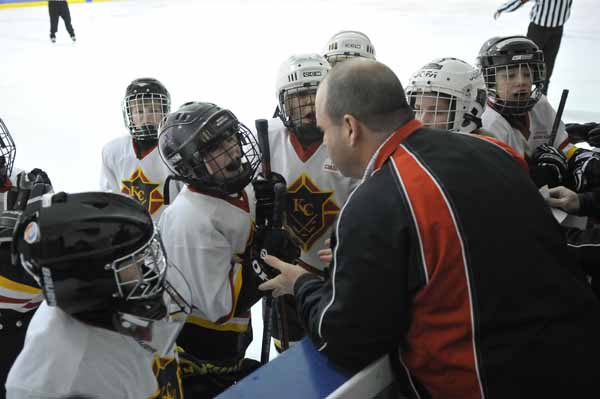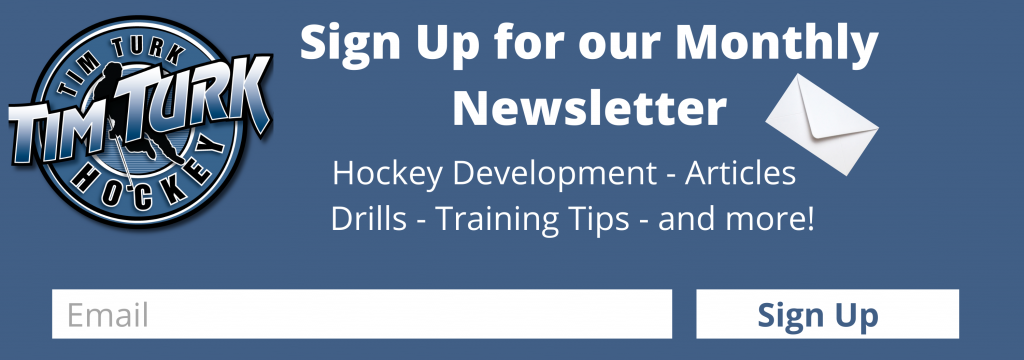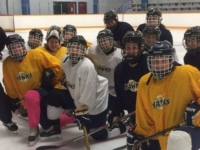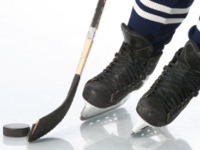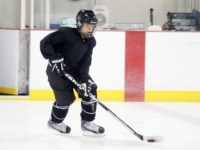With the youth hockey season winding down, it is often a good time for coaches to look back and reflect on the year. Successes and shortcomings should be measured by more than just wins and losses. When it comes to youth sports, the emphasis on success should be placed more on player development. Before you settle into a routine of sleeping in on the weekends and not having to wash your gear, take some steps to get organized for the start of the next season. Why? Because the off-season is not as long as think it is and it beats doing everything in a rush!
Our advice to coaches out there? Make an off-season checklist so that you already have a mental note of what you need to prepare. It doesn’t take much time at all, and you can relax knowing you have already done some of the work, while you are still in coaching mode. Here are a few things you might want to consider putting on your off-season checklist!
Stay In Shape
You might laugh at this one but none of us are getting any younger. Make it a point to stay in shape during the offseason so you can keep up with your kids when you get back on the ice next year. Not only is this important as a coach but it is also beneficial for your health as well. Help yourself by creating an off-season plan to keep yourself in mid-season form. It does not have to be complicated, but regular stretching, yoga, and some cardio will go a long way in avoiding some rust when you step back on the ice.
Recharge Your Mind
Coaching youth hockey might not seem like a difficult mental task but those of us who have coached know how taxing it can be. Preparing for practices and games, dealing with players and parents, as well as balancing the rest of our lives, can be more onerous than you might think. Take some time to clear your mind and recharge so you can focus on things in the off-season. How can you do this? Whatever your preferred way of relaxation is. Meditation and yoga have become extremely popular for NHL players to use both during and after the season.
Reflect on the Season
It is also helpful to take some time and reflect on both the good and bad parts of this past season. What worked well with your players? What didn’t? Is there a way to improve practices or game experiences? Which drills did your players enjoy and which ones were not so enjoyable? It also helps to keep track of these things during the season so you can review things afterwards. If you are expecting to coach some of the same players again, it is a good time to mix things up. Add some new drills, especially ones that can help develop some of your player’s weaknesses. It is always good to change things up, especially as the players look to develop new skills as they get older.
Provide your Players with Off-Season Drills
This is a great way to help your players stay in shape and keep their minds on hockey as well. Many of them will play other sports like baseball during the summer, but providing them with some drills they can do at home is a great way to keep them sharp during the off-season. Again, it does not have to be anything complicated. Simple drills where they can work on shooting, stickhandling or hand-eye coordination are easy to explain. In this day and age, you can even take the time to make a short video that you can send out to the parents. It helps to illustrate exactly what you want the kids to work on. If they stick to the regiment, you will notice an improvement when the next season rolls around!
Educate Yourself
The off-season is a great time to improve your own hockey IQ as well. There are plenty of resources out there about coaching and being a leader for youths. Take the time to read a book about coaching or leadership. If you’re not into books, there are plenty of great YouTube channels or podcasts you can listen to. Educating yourself and improving your leadership skills will only prepare you to be a better coach in the future. Invest in yourself so that you can invest your time and effort into your team when the new season starts.
Think of New Drills for Your Players
This goes hand in hand with providing your players with off-season drills. Creating some fresh new drills is a great way to get your players to engage when they step back on the ice. After a season of doing the same drills at practice, it helps to bring a whole new routine. There are plenty of resources online where you can create and even collaborate with other coaches. If you stay connected to your players and parents in the off-season, you can even create weekly or monthly skill plans for them to practice. The bottom line here is taking the time and effort to keep things fresh for both you and your players!
Conclusion: Post-Season Checklist for Coaches
These are just a few tips to consider as you head into the off-season. Do you have to do all of these things? Of course not! You could have ideas for your checklist and that’s fine. The main purpose of this article was to put in your mind that you should always be looking to improve your coaching skills and the experience of your team on the ice. The more effort you put into coaching in the off-season, the easier coaching will be once the season starts!


